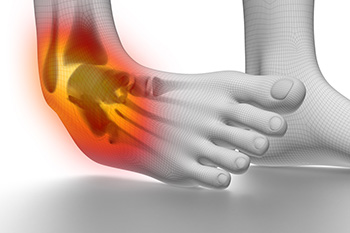Managing Various Grades of Ankle Sprains
Tuesday, 27 February 2024 00:00
Ankle sprains are common injuries that can disrupt daily activities and sports participation. Effective management of ankle sprains involves understanding the severity of the injury and implementing appropriate treatment strategies. Ankle sprains are often classified into three grades, based on the extent of ligament damage. Grade I sprains involve mild stretching or microscopic tears of the ligaments, resulting in minimal swelling and pain. Grade II sprains involve partial tearing of the ligaments, leading to moderate swelling, pain, and instability. Grade III sprains are the most severe, involving complete tearing of the ligaments, significant swelling, and joint instability. Management of ankle sprains typically begins with elevation which may help to reduce any existing swelling. In severe cases, immobilization with a brace or boot may be necessary to facilitate healing. Gradual return to weight-bearing activities and sports should be guided by pain tolerance and functional improvement, aiming to prevent recurrent injuries and promote long-term ankle health. If you have sprained an ankle, it is suggested that you consult a podiatrist who can determine the grade of the sprain and offer appropriate treatment methods.
Although ankle sprains are common, they aren’t always minor injuries. If you need your ankle injury looked at, contact Dr. Ronald K. Olm from Grand Traverse Foot & Ankle Center. Our doctor can provide the care you need to keep you pain-free and on your feet.
How Does an Ankle Sprain Occur?
Ankle sprains are the result of a tear in the ligaments within the ankle. These injuries may happen when you make a rapid shifting movement while your foot is planted. A less common way to sprain your ankle is when your ankle rolls inward while your foot turns outward.
What Are the Symptoms?
- Pain at the sight of the tear
- Bruising/Swelling
- Ankle area is tender to touch
- In severe cases, may hear/feel something tear
- Skin discoloration
Preventing a Sprain
- Wearing appropriate shoes for the occasion
- Stretching before exercises and sports
- Knowing your limits
Treatment of a Sprain
In many cases, the RICE method (Rest, Ice, Compression, and Elevate) is used to treat ankle sprains. However, you should see a podiatrist to see which treatment option would work best with your injury. In severe cases, surgery may be required.
It is important to ask your doctor about rehab options after you receive treatment for your injury. Stretching, strength training, and balance exercises may help the ankle heal while also preventing further injury.
If you have any questions, please feel free to contact one of our offices located in Traverse City and Kalkaska, MI . We offer the newest diagnostic and treatment technologies for all your foot care needs.





